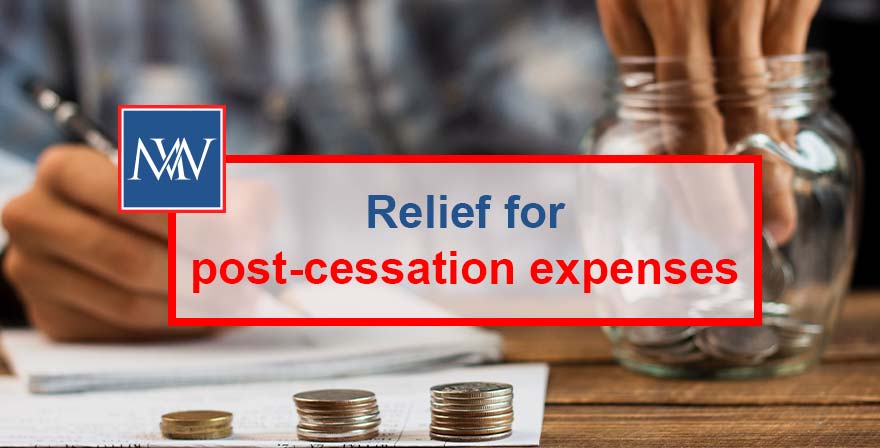
Relief for post-cessation expenses
The end of a business will not necessarily mean that no further expenses are incurred. Where expenses are incurred after the business has ceased, tax relief may be available.
Allowable post-cessation expenses
An expense will be an allowable post-cessation expense if:
- the business has ceased; and
- the expense would have been deductible in calculating the trading profits had it been incurred prior to cessation.
This means that the ‘wholly and exclusively’ test must be met and, unless the cash basis is used and the expense is a capital expense for which a deduction is allowed under the cash basis, revenue in nature.
If the expense only partially relates to the business, a deduction is available for the business portion if that can be determined. If apportionment is not possible, no deduction is forthcoming.
Relief is not available for expenses that relate to the cessation itself.
Examples of post-cessation expenses include the cost of remedying defective work and associated legal and professional costs and the cost of collecting debts relating to the trade.
Method of relief
There are four ways in which a post-cessation expense can be relieved:
- as a deduction from post-cessation receipts;
- as a loss set against total income;
- as a loss deducted from chargeable gains; or
- against future post-cessation receipts.
Relief is given in the above order.
Method 1 – deduction from post-cessation receipts
Where there are post-cessation receipts in the same period from the same trade, relief for allowable post-cessation expenses must be given as a deduction from those receipts before considering other methods of relief.
Method 2 – against total income
Where there are no post-cessation receipts in the same period, if the post-cessation expenses are incurred by someone subject to income tax (i.e., by an unincorporated business rather than by a company), the post-cessation expenses can be set against the total income of the same tax year.
Method 3 – against capital gains
To the extent that the post-cessation expenses exceed the individual’s total income, they can be set against any chargeable gains of the same tax year.
Method 4 – against future post-cessation receipts
If it is not possible to relieve the post-cessation receipts under methods 1 to 3, they can be carried forward and set against any future post-cessation receipts from the same trade.
Post-cessation expenses incurred by persons subject to income tax cannot be set against bad or doubtful debts paid after cessation or against a trading receipt that relates to post-cessation expenditure.
Post-cessation receipts
Receipts received after the business ceased are taxable if they would have been taxable had they been received when the business was trading.
An election can be made to carry back receipts received within six years of cessation to the date of cessation. Where such an election is made, the receipts are treated as if they were received on the date of cessation.
For more information, Book a Free Consultation
Need Accountancy Support?
For information on bespoke training, or if you have any other questions for Makesworth Accountant, please fill in your details below
















 151
151